2013 Yamaha FZR Review
Yamaha puts a new twist on a boat with legendary bloodlines
Three-passenger personal watercraft are great for obvious reasons, but when it comes to pure turn-and-burn fun, it’s hard to beat the appeal of a nimble two-up…like Yamaha’s FZR. A thrilling, performance-oriented machine that can trace its roots back to legendary craft like Yamaha’s GPR series, the FZR epitomizes the fun inherent to PWC riding.
A combination of factors contribute to the boat’s personality. Below the waterline, the boat sports a dihedral keel shape, a trademark of the aforementioned GPR. Full-length lifting strakes enhance its straight-line manners. Soft, rounded chines make the boat happy to roll into a corner with an intuitive, lean-in style. It’s the boat’s unique steering column, however, that truly sets it apart from the pack. In a nod to the legion of runabout riders who prefer to stand, especially in rough conditions, Yamaha developed a steering column that can telescope upwards from its stock position. Push a button, give a pull, and the handlebars extend upwards. This enables riders to stand without the hunched over, back-breaking crouch common to standing on a runabout, and enables use of the legs as natural shock absorbers in rough water.
Those bars can also, however, extend below the normal setting. Why go lower than the norm? It’s an ultra-aggressive position, great for making like a cafe racer and carving tight turns on flat water. When used in conjunction with the manual nozzle trim, pilots can power up to a corner, drop the bow, and then rail through with absolute authority.
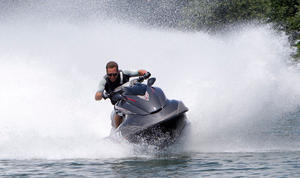 Want to get really aggressive in the corners? Lower the steering column and you’ll feel closer to the craft than you thought possible.
Want to get really aggressive in the corners? Lower the steering column and you’ll feel closer to the craft than you thought possible.The lowness to the water accentuates the feel. The only downside may be the manual nature of that trim. At speed, it can be hard to lower that nozzle as you’re literally fighting the force of water exiting the pump. Work around it by letting off the throttle for a split second, making your shift, and then quickly getting back on the throttle through the turn.
That nimble handling doesn’t come at the expense of Yamaha’s normal rough-water mastery. The brand is always one of the best in lousy conditions, able to bash its way through the waves without getting pushed off course. The FZR only continues that big water supremacy. It’s sometimes a firmer feeling ride, but never throws an unexpected surprise your way.
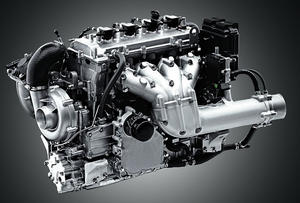 There’s no replacement for displacement.
There’s no replacement for displacement.While the hull certainly plays a big part, a powerful engine also deserves credit for the boat’s performance. Under the seat Yamaha utilizes its largest engine offering, a 1.8-liter supercharged package made even more potent by the addition of an intercooler to compress the air being fed into the engine. Combined with a 155mm pump and the naturally lighter weight of Yamaha’s NanoXcel hull material, the FZR powered to 30 mph in under two seconds and comfortably reached the magic 65 mph mark with a 155-pound passenger. Electronic throttle gives the driver a nice, smooth feeling of control throughout the entire powerband.
Unlike the VXR, a Yamaha with somewhat similar aggressive performance and handling, the FZR isn’t stripped down to the very basics, but instead includes its share of features and amenities. That telescoping handlebar is one obvious example. So, too, is the inclusion of Yamaha’s remote-based security system. Like an auto remote, it can disable the ignition. It can also be used to limit the engine’s power, whether you rely on it to tame the craft for a newcomer or to tone down the power to save fuel. The FZR also boasts decent storage, 21 gallons of total space spilt between the primary bow tub storage area and dash glovebox. You also get some racy analog gauges, a flip-down boarding ladder, and a cool, bolstered seat that will give you a locked-in feel, essential given the aggressive nature of the handling. The latter was upgraded in 2012 to include cut-and-sew construction, a technique that more precisely fits the vinyl to the seat below, especially in the area of that bolster, as well as improved aesthetics.
Certainly, the FZR’s audience is limited. Passenger space is one limitation, high performance is another. But for the customer who can appreciate these traits, this is a craft more than ready to exploit its strengths.
It’s just waiting for the right kind of rider.
| 2013 Yamaha FZR Specs | |
| Length | 132.7 inches |
| Beam | 48.4 inches |
| Curb Weight | 809 lbs |
| Engine | Four-cylinder, four-stroke, supercharged/intercooled |
| Displacement | 1,812 cc |
| Bore and Stroke | 86mm x 78mm |
| Compression Ratio | 8.6:1 |
| Rated Horsepower | N/A |
| Fuel Capacity | 18.5 gal. |
| Combined Stowage Capacity | 21.3 gal. |
| Colors | Carbon |
| Price | $13,999 |
Related Reading
2012 Yamaha FZS Review
2012 Yamaha VXR Review
2012 Yamaha VXS Review
2012 Yamaha FX SHO Review
Get PersonalWatercraft.com in your Inbox!
Like PersonalWatercraft.com on Facebook
Comments
Most Popular
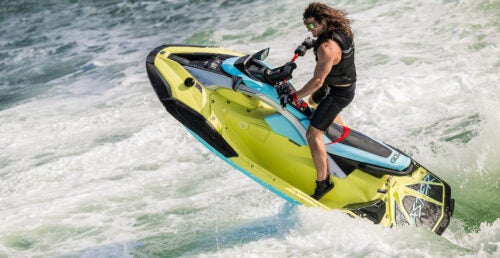
2025 Yamaha JetBlaster PRO 2-Up Review
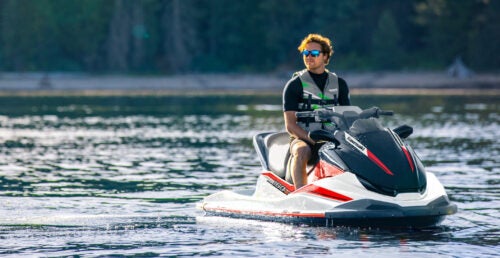
2024 Kawasaki Jet Ski STX 160X Review
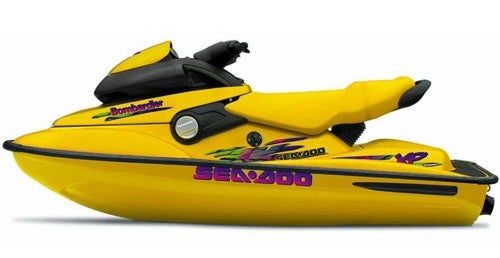
Remembering the Sea-Doo XP
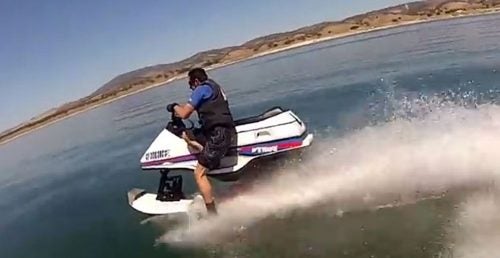
Whatever Happened to the Wetbike?
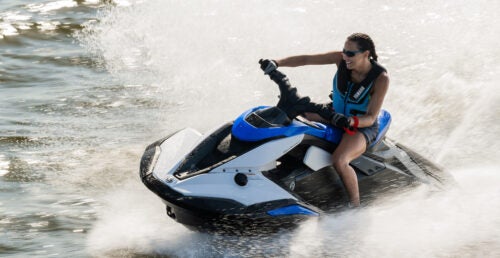
2025 Yamaha JetBlaster Review
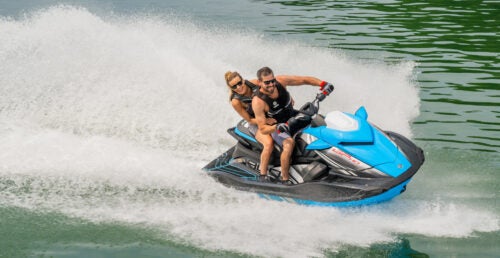
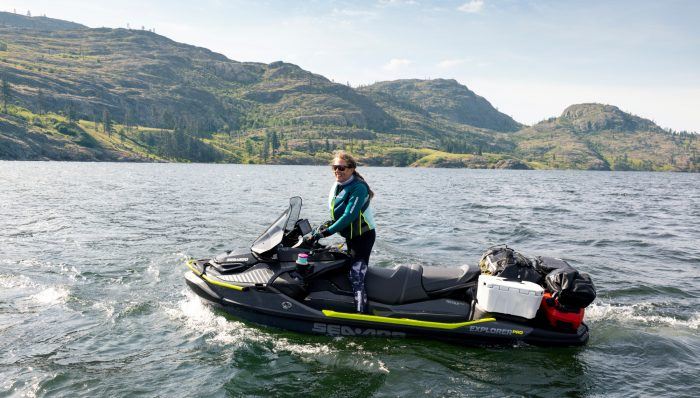
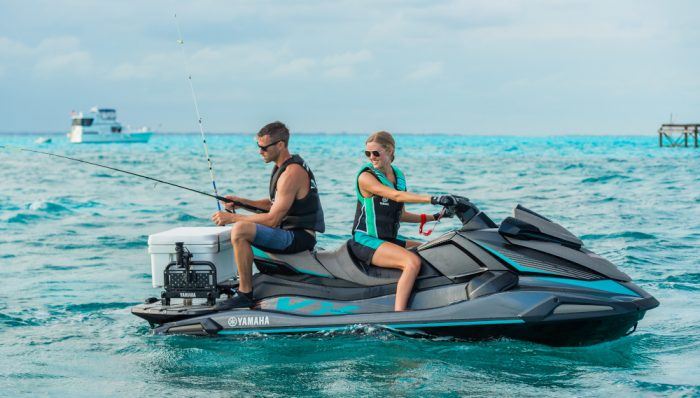
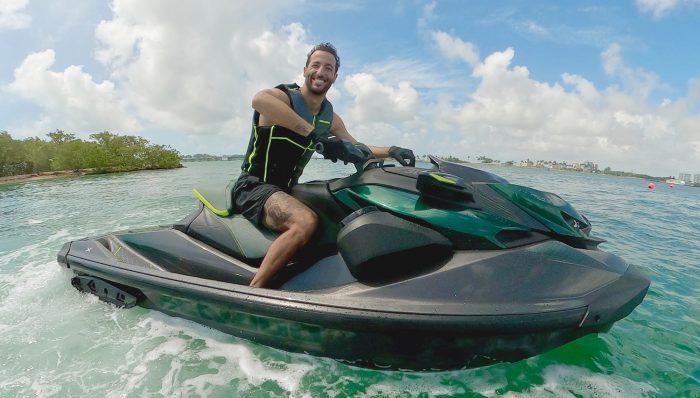
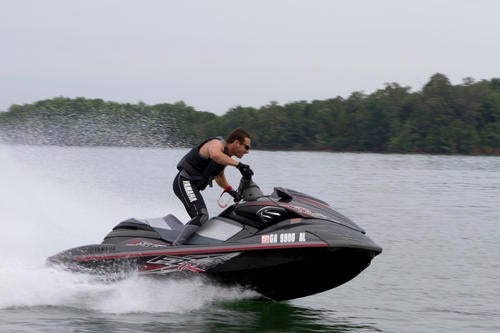
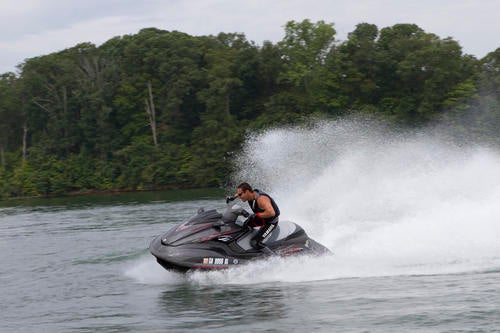




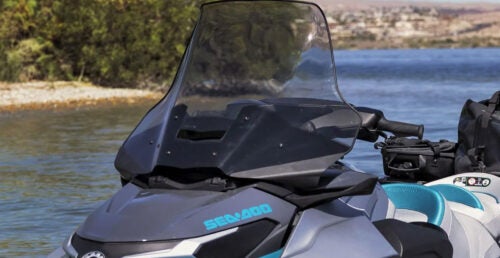
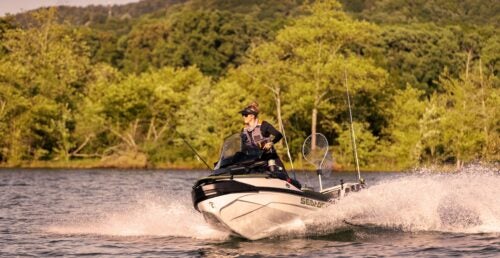


 Your Privacy Choices
Your Privacy Choices